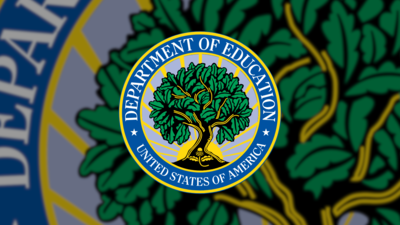Trump DoE to replace human workers with AI: The Department of Government Efficiency (DOGE), spearheaded by Elon Musk, is reportedly considering replacing contract workers in the Department of Education with AI chatbots.
Internal department documents reveal that Musk’s allies within the Education Department are exploring the use of generative AI to manage student and parent inquiries, according to a New York Times report. This initiative aligns with President Trump’s broader efforts to shrink the federal workforce and modernize public services using artificial intelligence.
Currently, 1,600 call center agents handle over 15,000 student loan inquiries daily, but the introduction of AI could drastically reduce the need for human workers. The chatbot system would replace or supplement existing services, such as Accenture’s help desk contract, valued at over $700 million since 2019, which is set to expire soon.
DOGE’s larger strategy: Federal workforce automation
The initiative follows broader cost-cutting measures, including reducing funding by 38% for call center operations, which some officials warn could “severely degrade” services for students and borrowers.
DOGE staffers reportedly aim to first reduce employee numbers through voluntary attrition before systematically replacing human workers with AI tools. The ultimate goal is to establish a model for AI-driven government services, potentially extending to other federal agencies.
AI in federal government: A growing trend?
Musk, a long-time advocate for AI, has been seeking greater control over OpenAI and has launched his own AI company. His associates within the federal government are pushing for AI-powered automation as a cost-saving measure.
DOGE is also planning a chatbot for the General Services Administration (GSA) to streamline document analysis and contract management, increasing efficiency. Legal challenges are emerging, with a federal judge recently blocking an effort to pressure government employees into resigning amid these automation plans.
A response to the FAFSA Crisis?
The push for AI comes after the disastrous 2023 rollout of the Free Application for Federal Student Aid (FAFSA), which left millions of students confused and unable to access financial aid resources.
Reports cited by NYT reports indicate that three-quarters of the 5.4 million calls to student aid help lines during the crisis went unanswered. While the government has since added over 500 human call center workers to reduce wait times, Musk’s team sees AI as a long-term solution to such inefficiencies.
The future of AI in public services
While both Trump and Biden administrations have supported AI-driven improvements in government services, the Education Department’s move to replace contract workers with chatbots raises concerns about service quality, job losses, and data security. If successful, DOGE’s AI strategy could reshape federal employment, shifting government work from bureaucrats to technocrats.
The proposal remains under evaluation, but if implemented, it could mark one of the most significant AI-driven shifts in federal operations, and might pave a way for its greater integration into other federal agencies.


